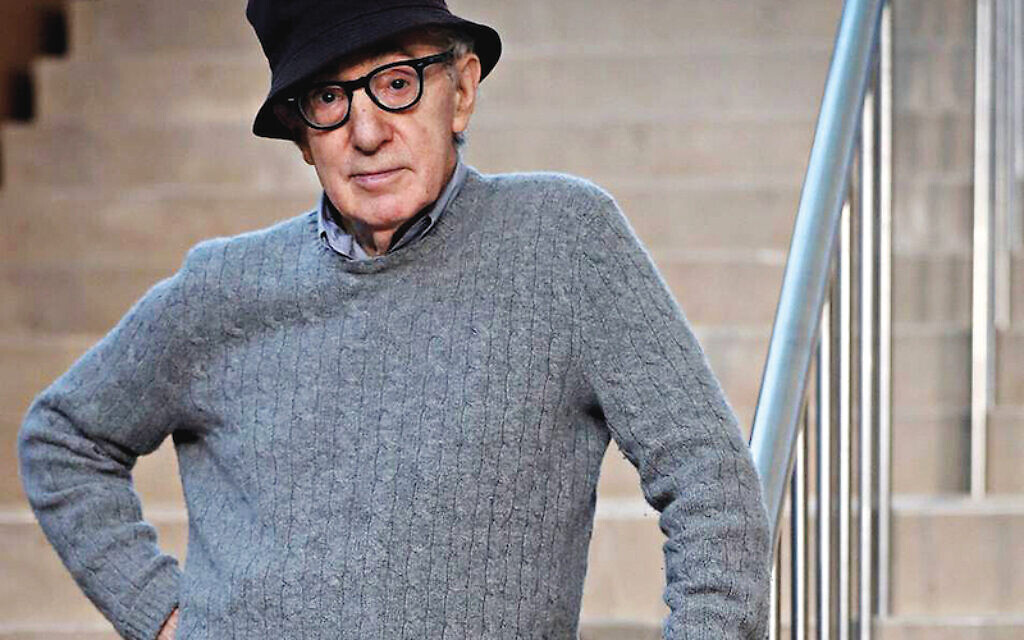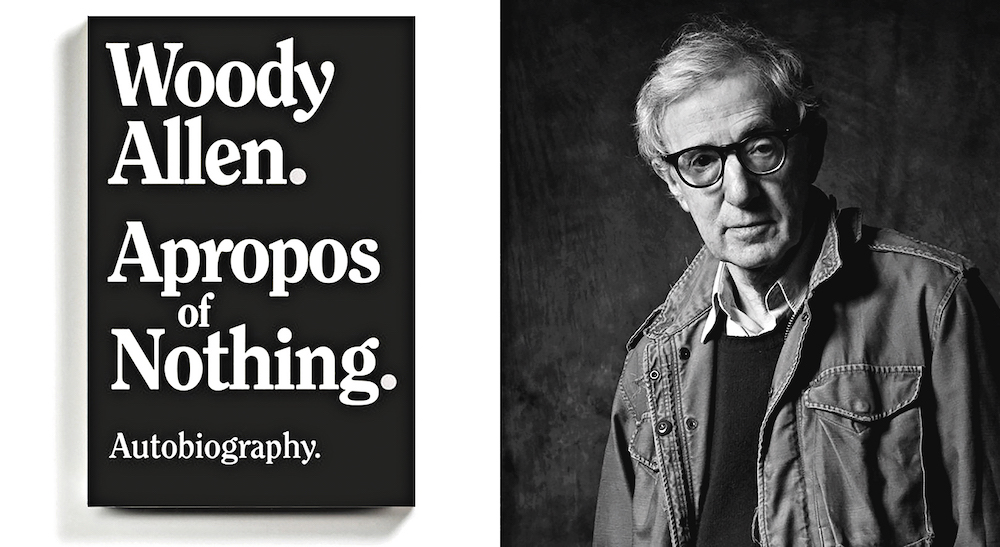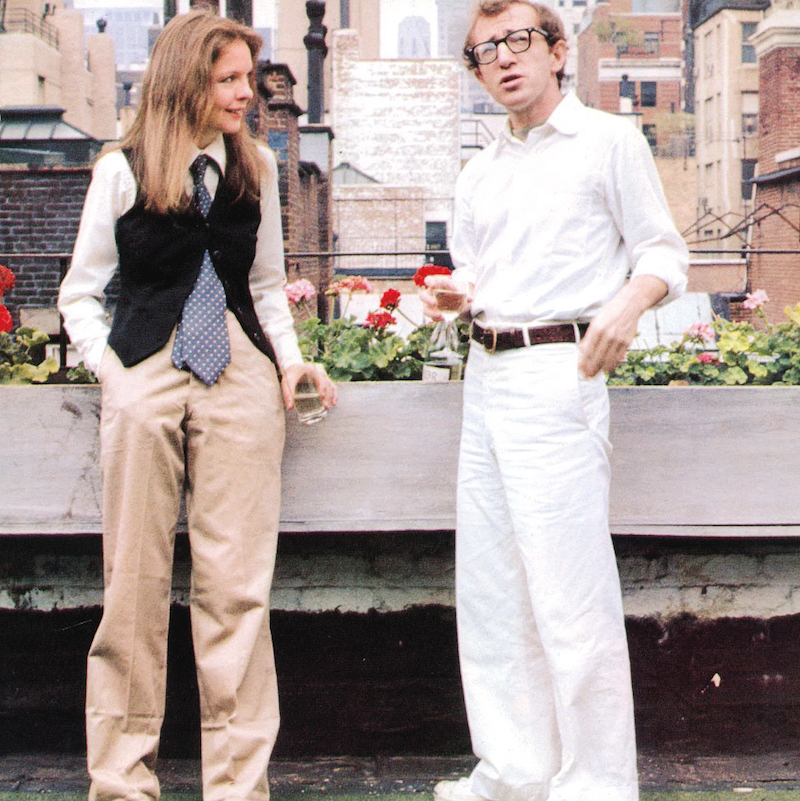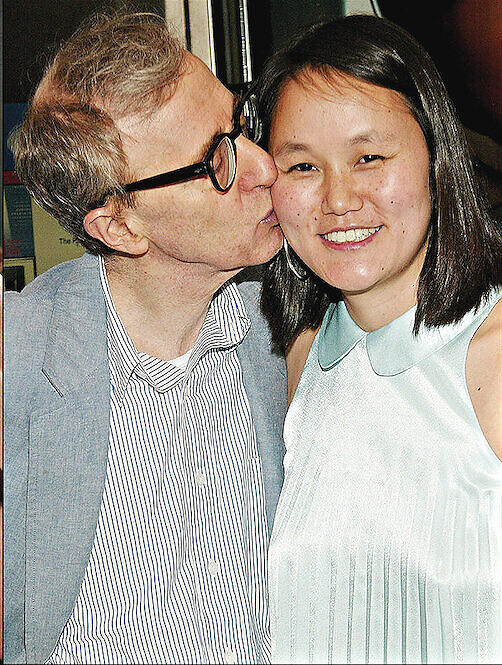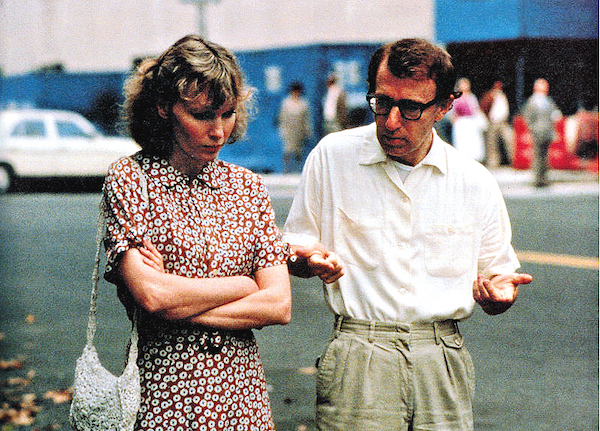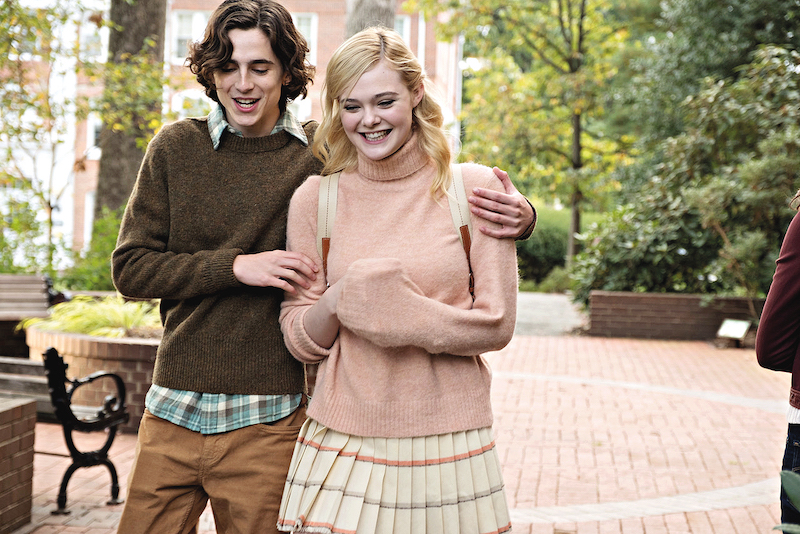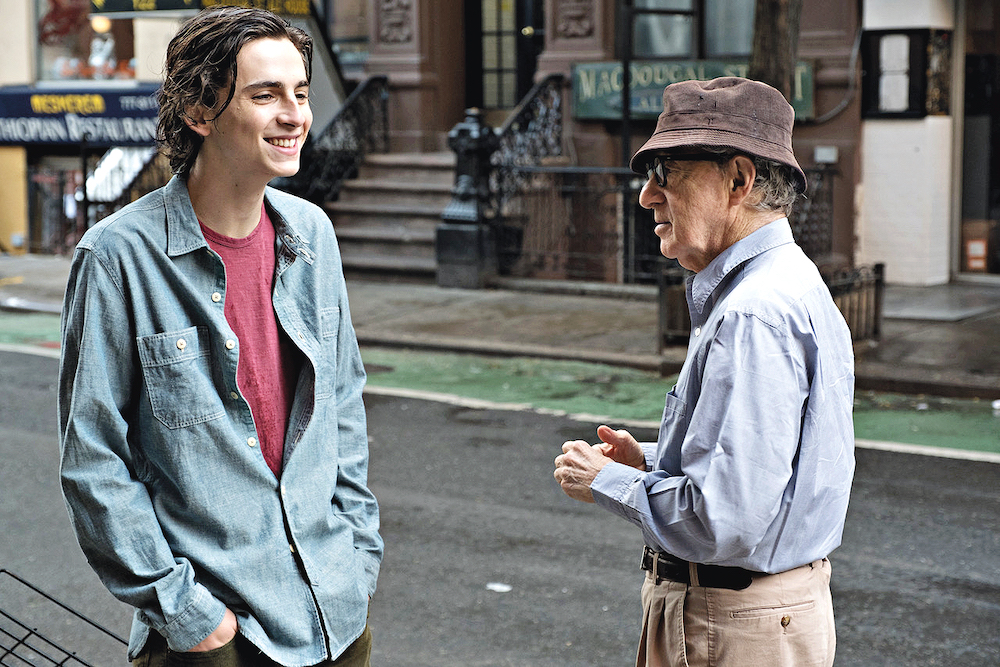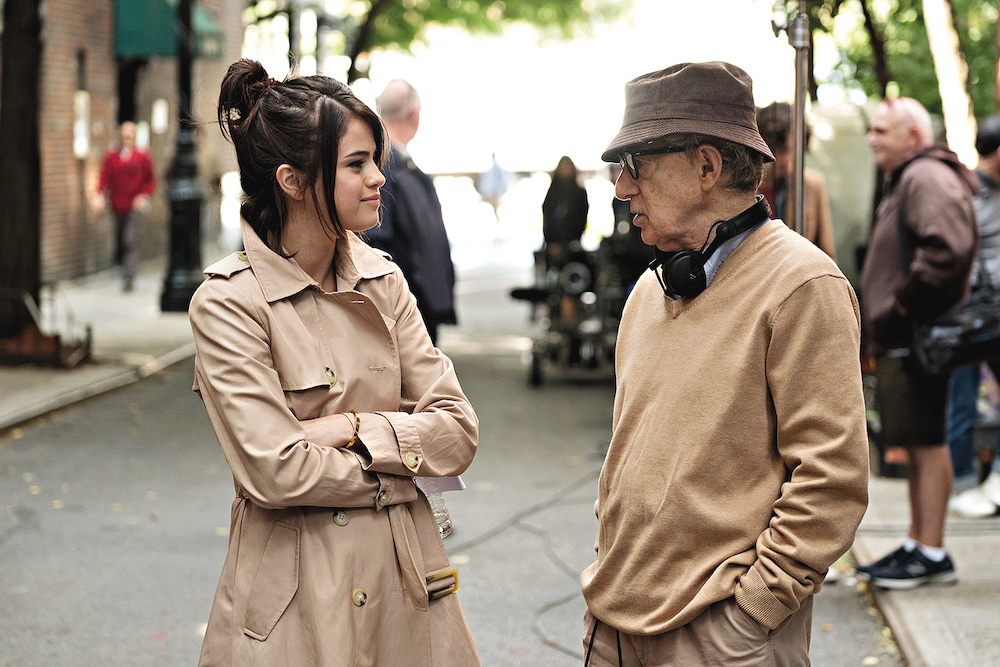Woody Allen: ‘I’m not as neurotic as my characters’
Brigit Grant has her life wish come true in a virtual chat with Woody Allen, who can still recite his barmitzvah portion and reveals why social distancing is a blessing
I always imagined my first interview with Woody Allen would take place at The Carlyle or sharing a Broadway Danny Rose sandwich at the Carnegie Deli on Seventh Avenue.
“Not on the telephone during a global pandemic,” I tell him after being introduced. “Well here we are, and it’s nice to meet you by phone,” he says.
And there it was – the signature Brooklyn cadence that has flavoured his films since 1963’s What’s New Pussycat which he wrote, starred in and believes deserves the bad reviews.
Get The Jewish News Daily Edition by email and never miss our top stories Free Sign Up
Fortunately, Woody has never taken notice of negative critiques and gave up reading many decades ago, although some appear within the vast recounting of his life in his first autobiography, Apropos of Nothing.
It’s a fitting title for this tome by a self-deprecating author, who questions his relevance to pretty much everything.
But it is the unvarnished truth and compulsory reading for his detractors – although that’s not why he wrote it.
“People have been asking me for years to do an autobiography, because I’ve been in showbusiness since I was 16 and have worked in print, radio, television, written theatre plays, directed opera, played jazz all over the world, acted and directed on the screen.
“So I’ve had lots of experiences people wanted to hear about and I had no interest other than making it entertaining.”
It is certainly that and more, as his vivid recollections transport you to the New York of his childhood, which served as the template for Radio Days, although the memories are conduits to other tales about his stand-up career, movie casting and relationships with women (including first wife Louise Lasser and live-in partner Diane Keaton), who remain Woody’s
closest friends.
Keaton is my cue to mention my Annie Hall obsession, which began in 1977 with waistcoats and peg trousers leading to ownership of a VW Beetle.
“I can understand that,” Woody says. “Diane has influenced fashion since she’s been around.”
For my sartorial emulation to be acknowledged by the creator of kooky “La Dee Da” Annie was thrilling – and exactly the conversation I’ve dreamt about for 30 years.
People have been asking me for years to do an autobiography, because I’ve been in showbusiness since I was 16 and have worked in print, radio, television, written theatre plays, directed opera, played jazz all over the world, acted and directed on the screen
Unusually, I have loved all of his films, from the wacky comedies to the Ingmar Bergman-style weighty dramas and latter-day wistful romances, such as A Rainy Day in New York, which is now on demand, in spite of Amazon’s attempt to bury it because of ‘#Me Too’ pressure.
The Soon-Yi controversy (Woody and the adopted daughter of Mia Farrow have been married for more than 20 years) and allegations of abuse from Farrow are addressed honestly in the book, yet still waft around his legacy like a bad smell.
“I never had the slightest interest in or illusion that anything I would write would change anybody’s mind about anything,” he tells me when I suggest it might.
“The ‘trouble’ I had was part of the chronological telling of my story, so I had to devote a certain amount of space to it. But then I went back to my movies.”
So back we go to Rainy Day, in which student film enthusiast Ashleigh (Elle Fanning) accompanies her boyfriend Gatsby (Timothée Chalamet) to New York, where an interview with disillusioned director Roland Pollard (Liev Schreiber) reveals a man who is ready to quit the business. Is that how Woody feels?
“I’ve always had a little secret, self-destructive hope that things would happen and I wouldn’t be able to make movies,” he volunteers. “Not because of ill health, God forbid, but because no one would back my films.
“But I didn’t want stopping to be my choice. So as long as people are willing to put up the large amount of money needed to make a film, I feel obliged to make them.
“But it would be nice if I woke up one day and no one would give me a penny, then I could do something else without any guilt.”
So what would you do? I ask, hoping he doesn’t mean it.
“I could do other things I’d enjoy, like work in the theatre and write books.”
The fact Woody has just written one hasn’t totally passed him by, as he describes the process of narrating it for the audio version as “tedious and enervating”, but after a project completes, he just moves on.
Thankfully, his dislike of recording the audio is not reflected in his narration, which bubbles along with humour and Yiddishims.
And he hasn’t held back on Jewish content, revealing as early as page 34 that his observant mother was “pretty strict about dietary laws that forbid pork, lobster and many delectable treats available to lucky infidels”.
Two pages prior, he describes school detention as a “mitzvah” as it made him late for Hebrew school, which he hated.
“The language is too guttural for my taste. Plus it was written backwards. Who needed that? I had enough trouble at school where things were written left to write.”
Yet he can still remember his barmitzvah portion.
“Your mind is like a sponge when you’re young and you absorb things you never forget, because they’re drummed into your head. But I never took those things seriously, I just did my barmitzvah to make my parents happy and it did. The second I was out on my own I didn’t have any interest in faith.”
He has filmed in synagogues since, but never attended as organised religions are not his thing.
“I’ve great respect for individual personal religious feelings and even envy it at times.
“But people who join religious groups, which require wearing certain clothes, eating ‘these’ foods and meeting every week to pray to some non-existent God… not for me.
“So once I was no longer subjected to the rules of my parent’s house, I never followed any religion.”
I remind him of his character Mickey’s search for faith in the Oscar winning Hannah and Her Sisters, but despite any interest in religious epiphanies, he and Soon–Yi raised his adopted daughters Bechet, and Masie, 20, faith-free.
As with all A-list interviews, the clock is ticking, but with restrictions imposed by the virus being particularly relevant to this 84-year-old – “I’m at the epicentre” between short walks, practising his clarinet – “just to maintain the level of badness I have achieved” and watching reruns of baseball games, there’s time to talk.
Your mind is like a sponge when you’re young and you absorb things you never forget, because they’re drummed into your head. But I never took those things seriously, I just did my barmitzvah to make my parents happy and it did. The second I was out on my own I didn’t have any interest in faith
So we do. About social distancing, which he has no problem with as he likes his own space and is not thrilled by “someone leaning in to give me some kind of pretentious double cheek kiss when I hardly know them. But that’s my thing”.
He doesn’t mind a hug or handshake from those he knows, “but not if it means transmitting an ominous disease”, and he fears the diagnosis for getting back to work is way off because of the closeness required for movie making.
“As for audiences sitting in theatres, I don’t really know when that is going to be a practicality. So I work on my script and I’m ready to go if somebody comes up with a vaccine.”
Once he can travel, Woody has an idea for a film in Paris: “Any excuse to shoot there I grab, because the prospect of living there for several months is delightful.”
I make a mental note to visit when he lands, just as I scheduled a visit to Spain when he was shooting the upcoming Rifkin’s Festival with Christoph Waltz and Gina Gershon.
Spain is also where he made Vicky Cristina Barcelona, but now hankers to return to the film’s location, San Sebastian – “a little paradise”.
If Woody is wowed by a place, his fans will be too, as his films are travelogues with vibrant vistas and unexplored streets, notably in New York, the jewel in his catalogue.
The city of old is a presence in his book, but he did not have a diary or consult notes and photos to nudge the synapses as this octogenarian’s memory is pin sharp.
So much so that should he bump into an old school pal, he can recall in detail their address, nickname, love of stamp collecting and talent for chemistry.
“I don’t always recognise them physically because they’re 60 years older, but if I get the name, it just comes to me without a problem.”
I lead a very quiet middle-class life. Were I as neurotic as the characters I write, I wouldn’t be able to make film after film.
The admission is modest, which is an endearing trait, but the traits he gives to film protagonists resembling him are not his, he insists. “I do impute characters with feelings of my own, but the mistake is to think they are me. I exaggerate characters, otherwise they would be as boring as I am in reality.”
Boring? Not true I bellow in the receiver.
“It’s true,” he says. “I lead a very quiet middle-class life. Were I as neurotic as the characters I write, I wouldn’t be able to make film after film.
“I do impute characters with feelings of my own, but the mistake is to think they are me. I exaggerate characters, otherwise they would be as boring as I am in reality.”
“I’m well organised, go out to dinner with my wife and watch sport. In a movie, you want Hamlet, Lady Macbeth; extraordinary characters who are homicidal and tremendously neurotic.”
Woody believes his wardrobe off-screen contributes to the confusion as identical tweeds are worn by his male leads. So much for the nebbish neurosis theory, yet there’s no denying his bleak view of the world as proved by his hopes for humanity.
“I never thought there was any hope because I am such a pessimistic person,” he groans.
“Check the world at any point and there is always something terrible going on in some place, if not many places.”
To escape the pessimism, we move to musicals; Gigi, Singing in the Rain, and Fiddler on the Roof, which he admires, but didn’t interest him.
My Fair Lady he preferred on stage and I’m tempted to paraphrase a song and ask if we can talk all night, but the last question is called.
In A Rainy Day in New York, Gatsby says real life is for the people who can’t do any better – is that your belief? Woody pauses.
“Yes, real life is not very nice, so you really want to try to inject as much magic into it as possible. We’re stuck with the real sad part, so create anything that takes you momentarily into a world that is more exciting.
“Sitting at a poker table, a love affair, raising children or watching a movie, will lift you out of the mundane and sad reality we all face every day.”
I struggle to say goodbye. So does he.
“I hope you like Rifkin’s Festival, it’s an interesting movie and if you’re a film buff and like film-makers I like – Truffaut, Fellini and Bunuel – I think you will like it.” Woody Allen hopes
I like his film. My life is complete.
- A Rainy Day in New York (12) is available on demand from Amazon Prime Video, Google Play, YouTube, Sky Store and ukJewishfilm.org
- Apropos of Nothing is published by Arcade Publishing, priced £24.77 (hardback). Available widely and from Audible.

Thank you for helping to make Jewish News the leading source of news and opinion for the UK Jewish community. Today we're asking for your invaluable help to continue putting our community first in everything we do.
For as little as £5 a month you can help sustain the vital work we do in celebrating and standing up for Jewish life in Britain.
Jewish News holds our community together and keeps us connected. Like a synagogue, it’s where people turn to feel part of something bigger. It also proudly shows the rest of Britain the vibrancy and rich culture of modern Jewish life.
You can make a quick and easy one-off or monthly contribution of £5, £10, £20 or any other sum you’re comfortable with.
100% of your donation will help us continue celebrating our community, in all its dynamic diversity...
Engaging
Being a community platform means so much more than producing a newspaper and website. One of our proudest roles is media partnering with our invaluable charities to amplify the outstanding work they do to help us all.
Celebrating
There’s no shortage of oys in the world but Jewish News takes every opportunity to celebrate the joys too, through projects like Night of Heroes, 40 Under 40 and other compelling countdowns that make the community kvell with pride.
Pioneering
In the first collaboration between media outlets from different faiths, Jewish News worked with British Muslim TV and Church Times to produce a list of young activists leading the way on interfaith understanding.
Campaigning
Royal Mail issued a stamp honouring Holocaust hero Sir Nicholas Winton after a Jewish News campaign attracted more than 100,000 backers. Jewish Newsalso produces special editions of the paper highlighting pressing issues including mental health and Holocaust remembrance.
Easy access
In an age when news is readily accessible, Jewish News provides high-quality content free online and offline, removing any financial barriers to connecting people.
Voice of our community to wider society
The Jewish News team regularly appears on TV, radio and on the pages of the national press to comment on stories about the Jewish community. Easy access to the paper on the streets of London also means Jewish News provides an invaluable window into the community for the country at large.
We hope you agree all this is worth preserving.
-
By Brigit Grant
-
By Laurent Vaughan - Senior Associate (Bishop & Sewell Solicitors)
-
By Laurent Vaughan - Senior Associate (Bishop & Sewell Solicitors)
-
By Laurent Vaughan - Senior Associate (Bishop & Sewell Solicitors)
-
By Laurent Vaughan - Senior Associate (Bishop & Sewell Solicitors)


